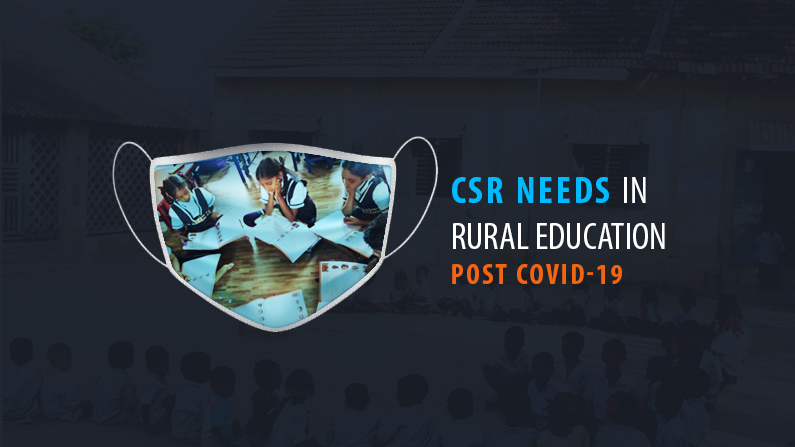Education being the vitality of life is questioned all the time; be it pandemic or epidemic the progression of life is disturbed.
Life seems difficult to return to the pre-covid era. With schools closed over the months, e-learning has taken the front door entry in the lives of students, educators and parents.
The lockdown has changed the perspective of School managements rather than the whole education vertical in the midst of keeping the education delivery on track the challenges of delivering the lectures were done through online platforms and apps.
This new paradigm shift has already witnessed a massive change in educational pedagogy. Schools teachers have been quite adaptive or we should say rather adaptive by force to get into e-learning and leaving the traditional teaching in the back seat.
However, the adaption of technology was reluctance in many places; let us take our focus toward Rural Education Sector.
The current trends reflect that the education vertical is the most affected one during the pandemic has left us with intelligent extrapolations. We saw the great rise of MOOC (Massive Open Online Courses) platforms. Government has its’ own platform like SWAYAM that hosts all courses taught in the classroom from high school to post-graduation and is free to access by all. The National Programme on Technology Enhanced Learning (NPTEL) provides e-learning through web and video courses.
DIKSHA is the National Digital Infrastructure for Teachers that focuses on all requirements for teachers, like lesson plans, concept videos, worksheets, and so on. Along with these, we have some global platforms like The Khan Academy, The Course era, The Edx etc.
Having talked about all the trends changing and the availability of resources, this needs to be taken to end-user the students at the economically challenged area. It is time that we consider the urgency and a need to understand that why Rural Education Sector needs Corporate Social commitments.
- Lack of Digital Infrastructure and Support: Rural Schools do not have the means to have internet connectivity. There should be basic e-learning offline content or bring the connectivity to bridge the gap with Urban Schools.
Students at home do not have sufficient bandwidth to study online lectures. It is time that with the help of the Government we mobilise the CSR enabling agencies.
Rural Schools should be digitally transformed to cut the cost of physical infrastructure
- Shortage Trained Teachers: Technology may never be able to replace teachers but it surely makes teachers smarter and agile in comparison to delivering the chalk-talk methodology.
Teacher’s to be trained for technical nuances of online teaching and can manage more lectures online through organised planning.
Training teachers can lead to content developers and subject matter experts for online teaching
- Cost-Effective Digital Transformation: On the other hand if we see the lab lectures are somewhat difficult to accommodate online. Therefore, these testing times can be a time of blended learning.Students can be called on only for workshops, physical education and lab lectures which maintains the cost-cutting of transport, electricity and other operational expenses
- Vernacular Content: It has been observed that video lectures sent to students are utilised for future reference as well, and as the visual creates a better impact on the brain the learning is retained for a longer period of time. We need more e-content in vernacular languages which gives conceptual clarity to students rather than just making the e-copy of state board textbooks.
- The need for Technological Devices: Even if we train the teachers for technology and provide access to the e-material to students, it is imperative that they should access it through ICT lab setups at school or laptops at home.
It is also heartening to see the support from the government to the Edtech consultants like D-Square Solution for the online learning content to be made affordable and accessible even in low bandwidth areas.
As a Leading Digital Education Consultant in Gujarat, we are aware that to bridge the gap or to be at par with the urban education sector we need greater intervention from corporates or government or agencies who are providing CSR Solutions in Education.
The post covid era is the era of blended learning and will result in fewer classrooms being required, resulting in saving the expenses of the schools.

